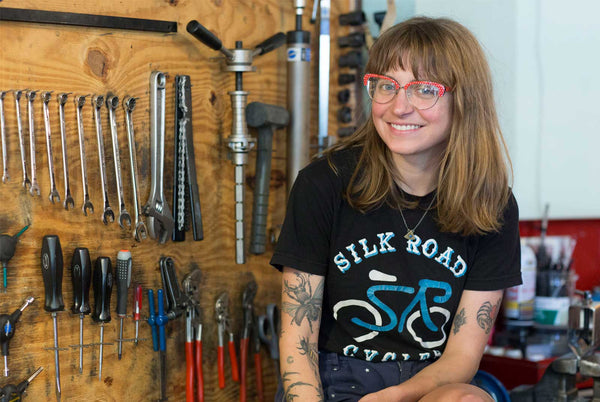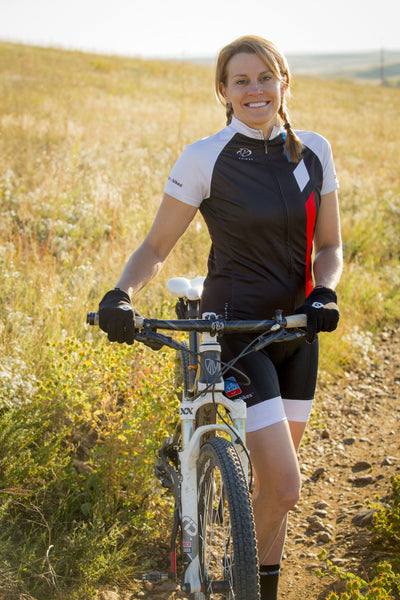Featuring Jenn Dice
Rare is the woman biker who hasn’t walked into a bike shop only to immediately feel unwelcome or out of place. This could be true for a number of reasons: Perhaps there isn’t a single other woman in the shop. Maybe all the imagery on the walls exclusively features male cyclists. Or maybe the women’s gear section is decidedly smaller and less impressive than what’s on offer for men.
Of course, shops aren’t unwelcoming to women riders on purpose. The daily stresses of retail mean that many shop owners simply don’t have time to take a step back and evaluate whether they’re unintentionally creating a male-dominated space. Nevertheless, bike shops that don’t make a point of welcoming women riders are missing out, says Jenn Dice, Vice President of Business Network and Government Relations at PeopleForBikes. Not only do these initiatives make the industry more inclusive (a worthy goal in its own right), but they’re also good for business. This is true for a number of reasons:
- There’s been a huge upswing in the number of women bikers over the past few years. From skills clinics to tour groups, charity rides, and ambassador programs, more and more women are leading the cycling charge. As a result, says Dice, “there’s a growing hunger for women-specific information on riding both on road and off.”
- Across a wide array of industries, says Dice, “Women make the bulk of the purchasing decisions for their households [and] tend to be genuine ambassadors for the things they love.”
- “[Increasing numbers of] women are active and healthy, and they want their family and friends to be healthy, too,” says Dice. So they’re likely to spread the word about biking if it’s something with which they’re having positive experiences.
When you put all these factors together, it’s clear that women can be a great economic driver for bike shops of all stripes. In Dice’s line of work, she see this play out every day: Shops and brands that cater to women are seeing positive results in their bottom lines.
So how can bike shops start attracting more women? Dice polled her female colleagues to come up with some stellar ideas.
1. Hire more women for leadership roles

2. Host social events
3. Create an ambassador program
4. Carry stylish women’s gear
Too often, women’s bike gear falls into the “shrink it and pink it” category, in which it doesn’t provide any unique value to women but simply features a smaller, pinker version of men’s products. If you want to serve women riders, it’s critical to take the time to research what women bikers are excited about and carry those trendy products, says Dice. This will be especially easy to accomplish if you’ve hired women at your shop.
5. Consider the optics of what you’re selling
In addition to stocking high-quality women’s gear, Dice points out that it’s critical to consider how you’re selling it. Does the imagery in your store include women? Are images of women restricted to super-fit models, or do they instead feature a variety of women riders? Do these images showcase women who bike at all aspects of the spectrum, from mountain bikers to road riders and beginners to pros? “As with anything in retail, it’s important to meet the customer where they are by providing them with imagery they can relate to and that feels exciting,” says Dice.
When you’re running a bike shop, it can be easy to get so caught up in the day-to-day stressors of retail that inclusive initiatives fall by the wayside. But by investing the time and energy in these women-friendly strategies, you’ll not only improve the bike community as a whole—you’ll also do a great service to your company’s bottom line.

In 2011, Jenn Dice was recognized by Outside Magazine’s “power list” of the top 25 people that influence the world outside for her time working for the International Mountain Bicycling Association and was inducted into the Mountain Bike Hall of Fame in 2014. She earned her masters in public administration from the University of Kansas and worked for the South Dakota, Kansas and Colorado state legislatures. Jenn is an avid endurance mountain biker who has completed the Leadville Trail 100 14 times and was the first woman to hike up, and mountain bike down Mount Kilimanjaro, Tanzania.



